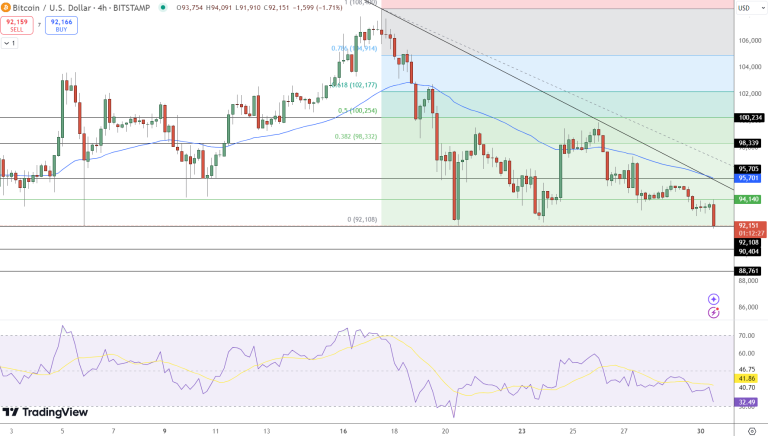Last updated:
 Why Trust Cryptonews
Why Trust Cryptonews

Lower-income households are increasingly leveraging gains from crypto investments to secure mortgages, according to a report by research economists at the United States Treasury’s Office of Financial Research.
The study, authored by researchers Samuel Hughes, Francisco Ilabaca, Jacob Lockwood, and Kevin Zhao, indicates a shift in borrowing trends among low-income households in areas with high crypto exposure.
“Crypto sales may have supported access to larger mortgages through bigger down payments,” the November 26 report stated.
Crypto Boom Fuels Mortgage Surge
The data reveals a dramatic rise in mortgage activity in regions with substantial crypto exposure.
In these areas, the percentage of low-income households with mortgages surged by over 250%, while the average mortgage balance climbed from approximately $172,000 in 2020 to $443,000 in 2024 — a 150% increase.
The researchers classified “high-crypto” zip codes as those where more than 6% of households reported a crypto-related tax event.
These areas also saw notable increases in auto loan originations and balances.
However, the trend raises concerns about financial stability, as households in these zones reported mortgage debt-to-income ratios exceeding recommended levels.
“High crypto exposure may be associated with behavior that contributes to financial instability,” the researchers warned.
Despite these concerns, delinquency rates in high-crypto areas remain low, suggesting no immediate financial distress.
Still, the researchers cautioned that high leverage could pose risks in the event of an economic downturn or a crash in crypto markets.
The report concluded that the growing debt balances and leverage among low-income households with crypto exposure warrant close monitoring.
“Rising distress in this group could cause future financial stress, especially if exposure to high-leverage, high-risk consumers is concentrated in systemically important institutions,” the study noted.
The trend coincides with broader increases in household debt in the United States.
According to the Federal Reserve Bank of New York, total U.S. household debt reached a record $17.9 trillion in the third quarter of 2024, driven by rising mortgage, auto loan, credit card, and student loan balances.
Growing Confidence in Crypto Among Financial Advisors
A recent survey conducted by the Digital Assets Council of Financial Professionals (DACFP) and Franklin Templeton Digital Assets reveals a notable shift in the attitudes of financial advisors and their clients toward cryptocurrencies.
The findings indicate increased adoption of digital assets in portfolios and growing recommendations by financial professionals, signaling rising confidence in the asset class.
The Q3 2024 Advisor Pulse Survey gathered insights from 619 financial professionals, 61% of whom serve clients with assets ranging from $500,000 to $3.5 million.
The data show that 19% of advisors now report more than half of their clients hold digital assets, up from 15% in the previous quarter.
Meanwhile, the percentage of advisors with no crypto-owning clients has dropped to just 3%, compared to 8% in Q2.
“These findings underscore a clear shift in how financial advisors view digital assets as part of their clients’ portfolios,” said Ric Edelman, founder of DACFP.



